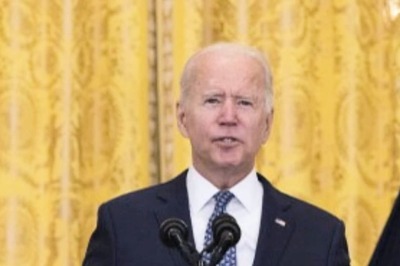
views
San Francisco: In the summer of 2007, Apple's Steve Jobs received a note from then-Palm chief executive Ed Colligan, according to correspondence revealed in a lawsuit over employee poaching.
"Your proposal that we agree that neither company will hire the other's employees, regardless of the individual's desires, is not only wrong, it is likely illegal," Colligan wrote to the now-deceased Apple chief.
The note was made public in a court filing on Thursday in a proposed class action brought by five software engineers against Apple Inc and other tech companies including Google Inc and Intel Corp.
The lawsuit accuses the companies of conspiring to keep employee compensation low by eliminating competition among them for skilled labor.
The filing has several redactions, and it is unclear whether Jobs responded to Colligan's note.
Apple declined to comment on Friday. Hewlett-Packard Co, which acquired Palm, also declined to comment.
Google, Apple, Adobe Systems, Intel, Intuit Inc and Walt Disney Co's Pixar unit settled a US Justice Department probe in 2010, which bars them from agreeing to refrain from poaching each other's employees.
In announcing the settlement, the Justice Department confirmed the existence of agreements between the companies to avoid cold-calling each other's workers. However, the civil court filing on Thursday reveals details on how those mutual understandings functioned in practice.
In 2005, then-Adobe CEO Bruce Chizen forwarded an internal Adobe email to Jobs, according to the court document. In it, an Adobe human relations executive says Adobe is not to solicit any Apple employee, due to an agreement between "Bruce and Steve Jobs."
The executive said Adobe would have to "back off" one solicitation of an Apple employee that had been in the works.
Adobe did not immediately respond to a request for comment on Friday.
The plaintiffs also cite correspondence from Pixar confirming a "gentleman's agreement" with Apple. Disney did not immediately respond to a request for comment.
The tech companies are seeking to dismiss the civil lawsuit, saying that the excerpted communications at most refer to bilateral business arrangements and not an "overarching conspiracy."
But the plaintiffs argue that these documents demonstrate a "multi-faceted illegal agreement," and that the case should move forward.
A hearing in the lawsuit is scheduled for January 26 in a San Jose, California federal court.



















Comments
0 comment